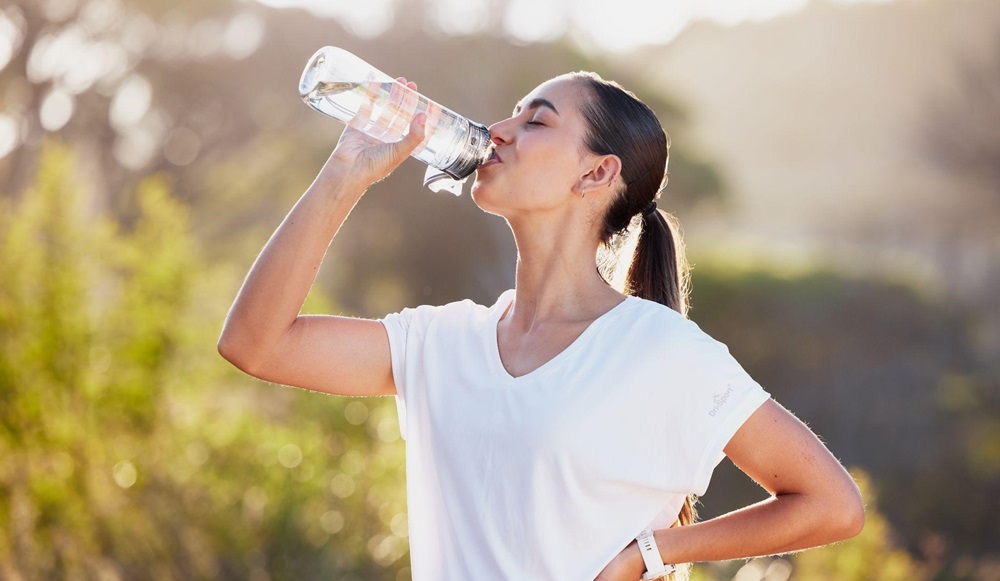Non-potable water is water you cannot drink. It’s not safe for human or pet consumption. Water from lakes, springs, ground wells, groundwater, and rivers is considered non-potable before it’s treated.
Non-potable water can contain dangerous pollutants, microbes, chemicals, or physical properties, making it a health risk.
These bacteria or toxins cause health problems if you drink it or, in some cases, if your skin comes in contact with it.
Reactions can be as mild as itchy skin or stomach upset to severe illness or death.
Non-potable water can be treated to make it potable. This is how local municipalities provide a water supply to residents of an area.
They take non-potable water and treat it to make it drinkable. Unfortunately, there are situations where this treatment isn’t enough, and “boil water” orders are issued to ensure that tap water is safe to use.
What Happens If You Drink Non-Potable Water?
Drinking non-potable water puts you at risk of developing health problems. When your skin or digestive tract is exposed to certain chemicals or microorganisms, it can cause a reaction that ranges from mild to severe.
These waterborne contaminants can be viral, bacterial, parasitic, or chemical and cause many health issues, including:
- Cholera: Kills someone within hours of drinking contaminated water if not treated immediately.
- Cryptosporidiosis: Caused by microscopic parasites.
- Giardiasis: Parasitic disease that causes abdominal pain, diarrhea, and weight loss.
- Dysentery: Gastroenteritis that causes inflammation and can be deadly if not treated.
Non-potable water serves a purpose but is unsuitable for human consumption. Some people use certain types of non-potable water for dishwashing or other cleaning tasks.
This is safe if the water doesn’t contain biological hazards, metals, viruses, or chemical residue.
Types of Non-Potable Water


Recycled or Reclaimed Water
Recycled or reclaimed water is created by capturing wastewater and using it for a specific purpose.
Uses include irrigation, replenishing groundwater, or in homes or industrial locations. If treated properly, it can be used for drinking, but this is far less common than the other uses.
Stormwater
Stormwater is rainwater and any other type that falls from the skin, including hail and snow. Stormwater can fall into bodies of water or be absorbed into soil.
It waters plants, provides wildlife drinking water, and refills surface and groundwater. It also falls onto rooftops, sidewalks, and other areas where it cannot be absorbed.
This creates runoff water that is exposed to potentially dangerous pollutants. It can pollute local waterways as it’s carried into lakes and streams.
As a result, regulations have been enacted to control stormwater runoff.
Greywater
Greywater is the water that is produced by household and personal routines, such as doing the dishes, washing clothes, or showering.
It’s one of the most common types of non-potable water and is also one of the most useful. It’s not fit for drinking unless treated, but it can be used for other purposes, such as washing cars or other outdoor pursuits.
Greywater contains a variety of contaminants, such as detergent, shampoo, food particles, and hair.
None of these pose a severe risk if exposed to this non-potable water, but it isn’t water you’d want to consume without removing the contaminants.
Greywater can be used for plant irrigation. Ideally, you can mix it with fresh water to give your plants the water they need to grow.
You can create a simple collection system with just a bucket under your faucets to capture the water before it drains, or you can create a more elaborate design that collects water from your drain pipes before it leaves your property and enters the sewer system.
Lakes and Rivers
All natural water that is not seawater, brackish water, or salt water is freshwater. It comes from rivers, lakes, streams, bogs, ponds, and glaciers.
Although it might sound like it, freshwater is not potable water. It might be safe to drink in some situations, but it’s difficult to know whether or not it is contaminated or polluted.
For example, a lake might look completely clean and fresh but contain bacteria that could be deadly if you consume the water. If treated, freshwater can be safe to drink.
Groundwater
Groundwater is made up of rock formations and the soil spore spaces under the earth. Rock deposits that produce a lot of water are called aquifers.
This water is used for industrial, municipal, and agricultural purposes and makes up the water table.
It might be surprising to learn that groundwater is less polluted than surface water but still isn’t considered potable unless treated.
Swimming Pool Backwash
This is water that comes from pool filters that is channeled to a tank. It should not be drunk or used to water plants because of its high chemical content. This applies to both fresh/chlorinated and saltwater pools.
In many cases, treating non-potable water makes it potable. The appropriate treatment method depends on the type of water you’re using.
In some cases, it’s enough to filter non-potable water through a filtering straw. In other cases, chemical treatment is needed to create safe water.
If you’re planning an event and wondering how you’ll provide attendees with potable water, we can help.
We provide clean, mobile drinking stations that are safe and convenient to use at festivals, events, emergencies, and disaster relief.


Our mobile stations are built with stainless steel fixtures, skirting, and hot-dipped galvanized frames after welding to make them sturdy and easy to transport.
We aim to ensure everyone on site can access clean, potable drinking water without purchasing endless plastic water bottles.
If you’d like to learn more or are interested in renting or buying one of our mobile water stations, book a quick call.

